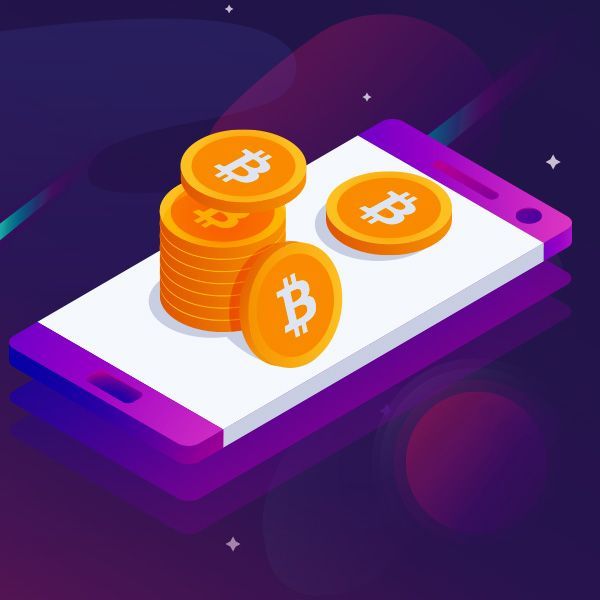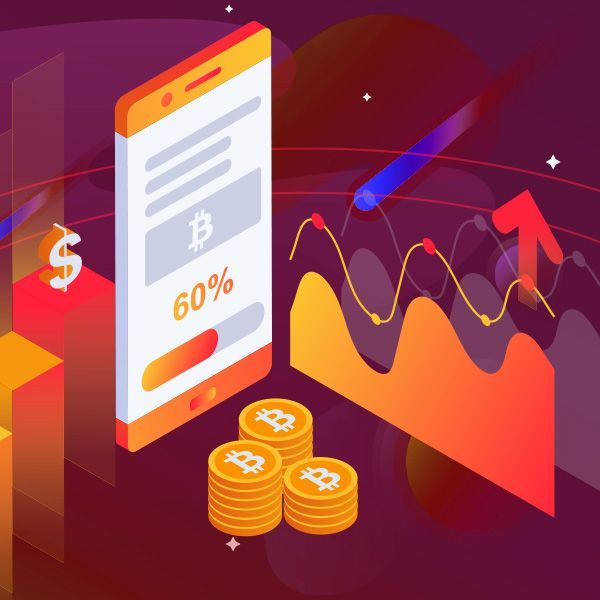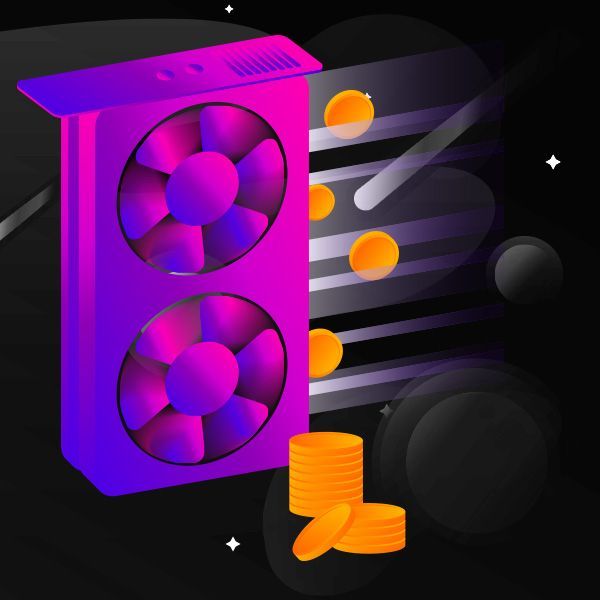Crypto Terms:
Letter G
What are Gas Station Networks (GSN)?
Meaning:
Gas Station Networks (GSN) -
a decentralized network of relayers that enables you to build decentralized applications (dApps).
Let's find out Gas Station Networks (GSN) meaning, definition in crypto, what are Gas Station Networks (GSN), and all other detailed facts.
GSN is a decentralized network of relayers that is mostly focused on the Ethereum blockchain. It enables you to create decentralized applications (DApps) that provide payment for transactions, removing the requirement for users to hold Ether (ETH) to pay for gas. This makes the onboarding process easier and improves the user experience.
The GSN was created by TabooKey and has now evolved to include many protocols, companies, and platforms in the Ethereum ecosystem. Various companies choose GSN to make the process of user onboarding with the Ethereum applications easier.
Note that the relayers in the GSN charge the recipient and contract but they don’t charge users. As a result, the relayers recover transaction expenses and earn from additional fees for offering such services.
It might seem that the GSN is an expensive investment due to the fact that the Ethereum network is known for sluggish transaction speeds and excessive fees when it is overloaded. However, GSNs are still thriving because their fees are far less expensive than the capital required for user acquisition, traditional marketing, and new user onboarding.
Besides, GSNs are convenient because they allow users to pay the platform or recipient off-chain in advance using regular payment methods like credit cards. With each GSN usage, the money is deducted from the user balance on the platform of the recipient.
In terms of reliability and security, GSNs are designed in such a way that it is in the best interests of relayers to properly process requests from the platforms they serve. This is the case because they get penalties if they don’t. In addition, smart contracts automate all of this, which greatly enhances user experience (UX) and reliability.
Ethereum, while many other blockchains simply use the term \"transaction fees.\" However, some blockchains like BSC or Polygon use the term \"gas\" as well.<\/p>\n<p><strong>Gas fees are paid to those who validate transactions on the blockchain<\/strong> in question, whether they be <a href=https://www.bitdegree.org/"https:////www.bitdegree.org//crypto//learn//crypto-terms//what-is-proof-of-work-pow/">PoW miners or <a href=https://www.bitdegree.org/"https:////www.bitdegree.org//crypto//learn//crypto-terms//what-is-proof-of-stake-pos/">PoS validator nodes. Each blockchain predetermines a minimal gas fee that you have to pay. Yet, a trader who wants to push their transaction to be validated faster than those of other traders can pay validators a \"tip,\" which will be added to the minimal gas fee.<\/p>\n<p>And this is exactly how a gas war begins, when traders start increasing their gas fees. However, <strong>a gas war is unlikely to break out over regular payments<\/strong>. It is more likely, for instance, when a brand-new crypto asset or <a href=https://www.bitdegree.org/"https:////www.bitdegree.org//crypto//learn//crypto-terms//what-is-non-fungible-token-nft/">non-fungible token (NFT)<\/strong><\/a> is put up for sale. Those who lose the gas war are unable to purchase the NFT at that specific price.<\/p>\n<p>The gas war, however, affects more people than just those looking to purchase assets in a specific sale. Everyone using the network to complete transactions at that time must pay higher gas fees or wait to finish their transaction later.<\/p>\n<p>A notable gas war happened when <strong>Yuga Labs opened the sale of Otherdeed NFTs in May 2022<\/strong>. The collection of 55,000 NFTs was sold out right after its launch, generating over $319 million, as gas fees fluctuated from 2.6 ETH to 5 ETH ($6,500-$14,000). For reference, Ethereum gas fees usually go from $2 to $5 worth of ETH.<\/p>","definition":"a bidding war that happens when investors start paying higher gas fees in order to push their transactions to be verified in the upcoming transaction block.","status":"published","meta_title":"What is Gas War? Definition & Meaning | Crypto Wiki","meta_description":"Gas War meaning: Gas War - a bidding war that happens when investors start paying higher gas fees in order to push their transactions to be verified in the upcoming transaction block.","meta_keywords":null}"
:prev-section="{"id":426,"wikipedia_url":"https:\/\/en.wikipedia.org\/wiki\/Ethereum#Gas","level":"medium","author_id":1,"created_at":"2023-06-19T06:58:59.000000Z","updated_at":"2023-12-07T05:05:42.000000Z","slug":"what-is-gas-price","title":"What is Gas Price?","section":"G","keyword":"Gas Price","content":"<p><strong>The term \"gas price\" is usually used when talking about the <a href=https://www.bitdegree.org/"//crypto//buy-ethereum-eth/">Ethereum network<\/strong>, while \"transaction fee\" is used when talking about most other networks. The gas price on the Ethereum blockchain refers to the quantity of ETH in gwei that has to be paid to transaction validators. One gwei is equal to 0.00000001 ETH.<\/p>\n<p>The majority of other cryptocurrencies and blockchains use analogous systems for controlling and sorting which transactions on the network are handled first. By establishing a fair market mechanism and motivating additional businesses to offer processing power to the network, this method assures genuine competition and safety for the blockchain.<\/p>\n<p><strong>The gas price is decided by an auction-type system<\/strong> in which miners search for the highest fees linked to a transaction, then run these transactions from there in a deteriorating order.<\/p>\n<p>Besides, blockchain privacy and steadiness increase along with the extra <strong>computational power<\/strong> that is measured in <a href=https://www.bitdegree.org/"//crypto//learn//crypto-terms//what-is-hash/">hashes. This is because potential fraudsters would require to overtake this power to disrupt the security of the blockchain.<\/p>\n<p>Extreme gas fees have been a big difficulty for Ethereum users and hinder the network's capacity to scale.<\/p>\n<p>As more and more of the most popular <a href=https://www.bitdegree.org/"//crypto//learn//crypto-terms//what-is-decentralized-exchange-dex/">decentralized exchanges (DEX)<\/strong><\/a> like <a href=https://www.bitdegree.org/"https:////www.bitdegree.org//crypto//goon//uniswap/" target=\"_blank\" rel=\"nofollow noindex noopener\"><strong>Uniswap<\/strong><\/a> and <a href=https://www.bitdegree.org/"https:////www.bitdegree.org//crypto//goon//sushiswap/" target=\"_blank\" rel=\"nofollow noindex noopener\"><strong>SushiSwap<\/strong><\/a>, as well as <a href=https://www.bitdegree.org/"//crypto//learn//crypto-terms//what-is-defi/">DeFi projects, and <a href=https://www.bitdegree.org/"//crypto//learn//crypto-terms//what-are-decentralized-applications-dapps/">DApps run on Ethereum, the more cramped the network becomes. This influences the higher gas prices to increase even more. For instance, in the 2020 DeFi boom, Uniswap partakers paid approximately $50 in gas fees per transaction.<\/p>\n<p>Though, since costs change over time and are naturally higher during high-activity periods, the majority of Ethereum wallets provide general standards for gas pricing.<\/p>","definition":"a price that has to be paid for transaction validation.","status":"published","meta_title":"What is Gas Price? Definition & Meaning | Crypto Wiki","meta_description":"Gas Price meaning: Gas Price - a price that has to be paid for transaction validation.","meta_keywords":null}"
:model="{"id":868,"wikipedia_url":"https:\/\/en.wikipedia.org\/wiki\/Ethereum#Gas","level":"easy","author_id":1,"created_at":"2023-06-19T06:59:01.000000Z","updated_at":"2024-01-02T18:21:24.000000Z","slug":"what-are-gas-station-networks-gsn","title":"What are Gas Station Networks (GSN)?","section":"G","keyword":"Gas Station Networks (GSN)","content":"<p><strong>GSN<\/strong> is a <a href=https://www.bitdegree.org/"//crypto//learn//crypto-terms//what-is-decentralized-network/">decentralized network<\/strong><\/a> of relayers that is mostly focused on the Ethereum blockchain. It enables you to create <a href=https://www.bitdegree.org/"//crypto//learn//crypto-terms//what-are-decentralized-applications-dapps/">decentralized applications (DApps)<\/strong><\/a> that provide <strong>payment for transactions<\/strong>, removing the requirement for users to hold <a href=https://www.bitdegree.org/"https:////www.bitdegree.org//crypto//buy-ethereum-eth/">Ether (ETH)<\/strong><\/a> to pay for gas. This makes the onboarding process easier and improves the user experience.<\/p>\n<p>The GSN was created by TabooKey and has now <strong>evolved to include many protocols, companies, and platforms in the Ethereum ecosystem<\/strong>. Various companies choose GSN to make the process of user onboarding with the Ethereum applications easier.<\/p>\n<p>Note that the relayers in the GSN <strong>charge the recipient and contract<\/strong> but they don’t charge users. As a result, the relayers recover transaction expenses and earn from additional fees for offering such services. <\/p>\n<p>It might seem that the GSN is an expensive investment due to the fact that <strong>the Ethereum network<\/strong> is known for sluggish transaction speeds and excessive fees when it is overloaded. However, GSNs are still thriving because their fees are far less expensive than the capital required for <strong>user acquisition<\/strong>, traditional marketing, and new user onboarding.<\/p>\n<p>Besides, GSNs are convenient because they allow users to pay the platform or recipient off-chain in advance <strong>using regular payment methods<\/strong> like credit cards. With each GSN usage, the money is deducted from the user balance on the platform of the recipient.<\/p>\n<p>In terms of reliability and security, GSNs are designed in such a way that it is <strong>in the best interests of relayers to properly process requests<\/strong> from the platforms they serve. This is the case because they get penalties if they don’t. In addition, <a href=https://www.bitdegree.org/"//crypto//learn//crypto-terms//what-is-smart-contract/">smart contracts<\/strong><\/a> automate all of this, which greatly enhances user experience (UX) and reliability.<\/p>","definition":"a decentralized network of relayers that enables you to build decentralized applications (dApps).","status":"published","meta_title":"What are Gas Station Networks (GSN)? Definition & Meaning | Crypto Wiki","meta_description":"Gas Station Networks (GSN) meaning: Gas Station Networks (GSN) - a decentralized network of relayers that enables you to build decentralized applications (dApps).","meta_keywords":null,"author":{"id":1,"user_id":1,"created_at":"2023-05-03T14:30:55.000000Z","updated_at":"2023-05-11T07:18:20.000000Z","title":"Editor-In-Chief","slug":"aaron-s-editor-in-chief","description":"<p>Having completed a Master’s degree on Economics, Politics & Culture for the East Asia region, Aaron has written scientific papers with a comparative analysis of the differences between US’ Western and Japan’s Collective forms of capitalism, 1945-2020.<\/p>\n<p>With close to a decade of experience in the FinTech industry, Aaron understands all of the biggest issues and struggles that crypto enthusiasts face. He’s a passionate analyst who is concerned with data-driven and fact-based content, as well as that which speaks to both Web3 natives and industry newcomers.<\/p>\n<p>Aaron is the go-to person for everything and anything related to digital currencies. With a huge passion for blockchain & Web3 education, Aaron strives to transform the space as we know it, and make it more approachable to complete beginners.<\/p>\n<p>Aaron has been quoted by multiple established outlets, and is a published author himself. Even during his free time, he enjoys researching the market trends, and looking for the next supernova.<\/p>","user":{"id":1,"first_name":"Aaron","last_name":"S.","email":"aaron@bitdegree.org","email_sanitized":"aaron@bitdegree.org","email_verified_at":"2023-12-01T09:40:20.000000Z","must_verify_email":false,"is_registered_with_wallet":false,"status":"active","country":"LT","last_connected_ip":"88.119.132.125","image_id":2641,"referral_token":"05TMu2NysXOCn525","referred_by":null,"created_at":"2023-05-03T14:30:55.000000Z","updated_at":"2024-01-09T15:22:21.000000Z","full_name":"Aaron S."}}}"
:chapter-list="[{"id":1,"title":"Blockchain","slug":"blockchain","updated":null,"chapter":"crypto\/assets\/crypto-book\/chapters\/learn-blockchain.jpg","chapter_simple":"crypto\/assets\/crypto-book\/chapters-simple\/blockchain-101.jpg","rating":100,"sections":[{"chapter_id":1,"order":1,"slug":"what-is-blockchain","title":"What is the Blockchain?","status":"published","modified_content":null},{"chapter_id":1,"order":2,"slug":"decentralized-blockchain","title":"Anonymous & Decentralized Blockchains: The Cornerstone of Crypto","status":"published","modified_content":null},{"chapter_id":1,"order":3,"slug":"blockchain-transaction","title":"What is a Blockchain Transaction in Crypto?","status":"published","modified_content":null},{"chapter_id":1,"order":4,"slug":"crypto-fees","title":"The Different Types of Crypto Fees Explained","status":"published","modified_content":null},{"chapter_id":1,"order":5,"slug":"what-is-bridging-in-crypto","title":"The Key Notion Behind the Concept of Bridging in Crypto","status":"published","modified_content":null},{"chapter_id":1,"order":6,"slug":"types-of-blockchains","title":"Different Types of Blockchains: What to Look Out For?","status":"published","modified_content":null}]},{"id":2,"title":"Cryptocurrencies","slug":"cryptocurrencies","updated":null,"chapter":"crypto\/assets\/crypto-book\/chapters\/learn-cryptocurrencies.jpg","chapter_simple":"crypto\/assets\/crypto-book\/chapters-simple\/cryptocurrencies-101.jpg","rating":100,"sections":[{"chapter_id":2,"order":1,"slug":"what-is-a-cryptocurrency","title":"What is a Cryptocurrency?","status":"published","modified_content":null},{"chapter_id":2,"order":2,"slug":"how-does-cryptocurrency-work","title":"How Does Cryptocurrency Work?","status":"published","modified_content":null},{"chapter_id":2,"order":3,"slug":"is-cryptocurrency-a-good-investment","title":"Is Cryptocurrency a Good Investment? The Pros & Cons","status":"published","modified_content":null},{"chapter_id":2,"order":4,"slug":"coin-vs-token","title":"Coin VS Token: How Do They Differ?","status":"published","modified_content":null},{"chapter_id":2,"order":5,"slug":"what-are-stablecoins","title":"What are Stablecoins, Altcoins & Wrapped Coins?","status":"published","modified_content":null},{"chapter_id":2,"order":6,"slug":"what-is-a-bitcoin","title":"Bitcoin: the Pioneer of the Crypto World","status":"published","modified_content":null},{"chapter_id":2,"order":7,"slug":"what-is-ethereum","title":"The Ultimate Blockchain for dApp Creation: Ethereum","status":"published","modified_content":null},{"chapter_id":2,"order":8,"slug":"what-is-cardano-in-crypto","title":"What is Cardano and What is It Used For?","status":"published","modified_content":null},{"chapter_id":2,"order":9,"slug":"what-is-shiba-inu-coin","title":"Shiba Inu: the Dogecoin Killer","status":"published","modified_content":null},{"chapter_id":2,"order":10,"slug":"what-is-solana-in-crypto","title":"Is Solana an Improved Version of Ethereum?","status":"published","modified_content":null},{"chapter_id":2,"order":11,"slug":"what-is-polkadot-in-crypto","title":"The Bridge Between Blockchains: Polkadot","status":"published","modified_content":null},{"chapter_id":2,"order":12,"slug":"what-is-polygon-in-crypto","title":"Polygon: the Essential Scaling Solution for Ethereum","status":"published","modified_content":null},{"chapter_id":2,"order":13,"slug":"what-is-luna-crypto","title":"The Bumpy Road of Terra (LUNA)","status":"published","modified_content":null},{"chapter_id":2,"order":14,"slug":"what-is-fantom-crypto","title":"Is Fantom (FTM) Yet Another Ethereum Killer?","status":"published","modified_content":null},{"chapter_id":2,"order":15,"slug":"what-is-aave-crypto","title":"Aave: Crypto Lending Trailblazer","status":"published","modified_content":null},{"chapter_id":2,"order":16,"slug":"what-is-algorand-crypto","title":"Did Algorand Truly Solve the Blockchain Trilemma?","status":"published","modified_content":null},{"chapter_id":2,"order":17,"slug":"what-is-olympus-dao","title":"Does Olympus DAO Have Anything to Do With Mythology?","status":"published","modified_content":null},{"chapter_id":2,"order":18,"slug":"what-is-avax","title":"Is Avalanche Network (AVAX) Rightfully Called the Future of DeFi?","status":"published","modified_content":null},{"chapter_id":2,"order":19,"slug":"what-is-monero-coin","title":"Monero: Where Cryptocurrency Meets Cryptography","status":"published","modified_content":null},{"chapter_id":2,"order":20,"slug":"what-is-ripple-xrp","title":"Is Ripple \"it\" When it Comes to Cross-Border Transactions?","status":"published","modified_content":null},{"chapter_id":2,"order":21,"slug":"practical-use-of-cryptocurrencies","title":"The Practical Use of Crypto","status":"published","modified_content":null}]},{"id":3,"title":"Crypto Exchanges","slug":"crypto-exchanges","updated":null,"chapter":"crypto\/assets\/crypto-book\/chapters\/learn-crypto-exchanges.jpg","chapter_simple":"crypto\/assets\/crypto-book\/chapters-simple\/crypto-exchanges-101.jpg","rating":80,"sections":[{"chapter_id":3,"order":1,"slug":"how-do-cryptocurrency-exchanges-work","title":"How do Cryptocurrency Exchanges Work?","status":"published","modified_content":null},{"chapter_id":3,"order":2,"slug":"dex-vs-cex","title":"DEX VS CEX: Two Sides of the Crypto Exchange Industry","status":"published","modified_content":null},{"chapter_id":3,"order":3,"slug":"crypto-day-trading","title":"Crypto Day Trading: The Difference Between Buying, Trading, and Swapping","status":"published","modified_content":null},{"chapter_id":3,"order":4,"slug":"kyc-crypto","title":"KYC & AML: The Key to Complying With Legal Industry Standards","status":"published","modified_content":null},{"chapter_id":3,"order":5,"slug":"how-to-buy-crypto","title":"From Fiat to Crypto: How to Buy Crypto for the First Time","status":"published","modified_content":null},{"chapter_id":3,"order":6,"slug":"fiat-to-crypto","title":"Taking Profits: Turning Crypto Into Fiat","status":"published","modified_content":null},{"chapter_id":3,"order":7,"slug":"how-to-use-crypto","title":"You\u2019ve Got Crypto: What Can You Do With It?","status":"published","modified_content":null}]},{"id":4,"title":"Crypto Wallets","slug":"crypto-wallets","updated":false,"chapter":"crypto\/assets\/crypto-book\/chapters\/learn-crypto-wallets.jpg","chapter_simple":"crypto\/assets\/crypto-book\/chapters-simple\/crypto-wallets-101.jpg","rating":80,"sections":[{"chapter_id":4,"order":1,"slug":"what-is-a-crypto-wallet","title":"What is a Crypto Wallet?","status":"published","modified_content":null},{"chapter_id":4,"order":2,"slug":"hot-wallet-vs-cold-wallet","title":"Hot Wallet VS Cold Wallet: Which One to Pick?","status":"published","modified_content":null},{"chapter_id":4,"order":3,"slug":"non-custodial-wallet","title":"What are Non-Custodial Crypto Wallets?","status":"published","modified_content":null},{"chapter_id":4,"order":4,"slug":"what-is-metamask","title":"Metamask: The Leading Non-Custodial Wallet","status":"published","modified_content":null},{"chapter_id":4,"order":37,"slug":"how-safe-is-cryptocurrency","title":"The Key Crypto Wallet Safety Practices: How Safe Can Crypto Be?","status":"published","modified_content":null}]},{"id":5,"title":"NFTs","slug":"nfts","updated":null,"chapter":"crypto\/assets\/crypto-book\/chapters\/learn-nfts.jpg","chapter_simple":"crypto\/assets\/crypto-book\/chapters-simple\/nfts-101.jpg","rating":100,"sections":[{"chapter_id":5,"order":2,"slug":"how-to-trade-nfts","title":"NFT Trading: The Ins and Outs","status":"published","modified_content":null},{"chapter_id":5,"order":3,"slug":"buying-nft","title":"Tips and Tricks of Choosing the Right NFTs","status":"published","modified_content":null},{"chapter_id":5,"order":4,"slug":"how-to-store-nft","title":"How to Store NFTs: Best Practices","status":"published","modified_content":null},{"chapter_id":5,"order":5,"slug":"how-to-create-an-nft","title":"How to Create Your Own NFTs?","status":"published","modified_content":null},{"chapter_id":5,"order":6,"slug":"how-to-make-passive-money-with-nft","title":"Making Passive Money with NFTs","status":"published","modified_content":null}]},{"id":6,"title":"dApps & Defi","slug":"dapps-and-defi","updated":true,"chapter":"crypto\/assets\/crypto-book\/chapters\/learn-dapps.jpg","chapter_simple":"crypto\/assets\/crypto-book\/chapters-simple\/dapps-defi-101.jpg","rating":80,"sections":[{"chapter_id":6,"order":1,"slug":"what-are-nfts","title":"What are Non-Fungible Tokens (NFTs)?","status":"published","modified_content":null},{"chapter_id":6,"order":1,"slug":"what-is-defi","title":"What is Decentralized Finance (DeFi)?","status":"published","modified_content":null},{"chapter_id":6,"order":2,"slug":"what-is-defi-2-0","title":"DeFi 2.0: The New Version of Decentralized Finance","status":"published","modified_content":null},{"chapter_id":6,"order":3,"slug":"what-are-dapps-in-crypto","title":"What Are dApps and How Do They Work?","status":"published","modified_content":null},{"chapter_id":6,"order":4,"slug":"defi-dapps","title":"Picking the Right dApps: Dos and Don'ts","status":"published","modified_content":null},{"chapter_id":6,"order":5,"slug":"what-is-web-3-0","title":"Web 3.0: The Future of the Internet","status":"published","modified_content":null},{"chapter_id":6,"order":6,"slug":"what-are-smart-contracts","title":"What is the Core Purpose of Smart Contracts?","status":"published","modified_content":null},{"chapter_id":6,"order":7,"slug":"what-is-a-dao-in-crypto","title":"The Notion of a Decentralized Autonomous Ogranization (DAO)","status":"published","modified_content":null},{"chapter_id":6,"order":8,"slug":"what-is-staking-in-crypto","title":"What is the Goal of Staking Crypto Assets?","status":"published","modified_content":null},{"chapter_id":6,"order":9,"slug":"what-is-liquidity-pool-in-crypto","title":"What is a Liquidity Pool and How Does It Work?","status":"published","modified_content":null},{"chapter_id":6,"order":10,"slug":"what-is-automated-market-maker","title":"Automated Market Maker: the Cornerstone of the Decentralized Crypto Exchange Industry","status":"published","modified_content":null},{"chapter_id":6,"order":11,"slug":"what-is-yield-farming-in-crypto","title":"The Main Yield Farming Techniques","status":"published","modified_content":null},{"chapter_id":6,"order":12,"slug":"what-is-an-oracle-in-crypto","title":"Crypto Oracles: The Link Between Blockchain and Outside World Data","status":"published","modified_content":null},{"chapter_id":6,"order":13,"slug":"crypto-gambling","title":"The Peculiarities of Decentralized Crypto Gambling","status":"published","modified_content":null},{"chapter_id":6,"order":14,"slug":"what-is-the-metaverse","title":"Metaverse: A New Perception of Reality","status":"published","modified_content":null}]},{"id":7,"title":"Trading & Investing","slug":"trading-and-investing","updated":null,"chapter":"crypto\/assets\/crypto-book\/chapters\/learn-crypto-trading.jpg","chapter_simple":"crypto\/assets\/crypto-book\/chapters-simple\/crypto-trading-101.jpg","rating":80,"sections":[{"chapter_id":7,"order":1,"slug":"where-to-trade-crypto","title":"Where Can You Trade Cryptocurrencies?","status":"published","modified_content":null},{"chapter_id":7,"order":2,"slug":"how-to-invest-in-crypto","title":"Investing in Crypto: What Investing Options Do You Have?","status":"published","modified_content":null},{"chapter_id":7,"order":3,"slug":"ico-vs-ido","title":"ICO vs IDO vs IEO: Which One is the One?","status":"published","modified_content":null},{"chapter_id":7,"order":4,"slug":"what-is-an-airdrop","title":"What are Crypto Airdrops and How to Get Them?","status":"published","modified_content":null},{"chapter_id":7,"order":5,"slug":"how-to-get-free-crypto","title":"How to Get Free Crypto Assets?","status":"published","modified_content":null},{"chapter_id":7,"order":6,"slug":"how-to-arbitrage-crypto","title":"What is Crypto Arbitrage: The Main Principles","status":"published","modified_content":null},{"chapter_id":7,"order":7,"slug":"what-is-a-perpetual-contract","title":"Perpetual Contracts: Futures Contracts Without an Expiration Date","status":"published","modified_content":null},{"chapter_id":7,"order":8,"slug":"what-is-fud","title":"What is FUD: How to Use It to Your Advantage While Investing in Crypto?","status":"published","modified_content":null},{"chapter_id":7,"order":9,"slug":"investing-in-cryptocurrency","title":"Investing in Cryptocurrency: How to Manage Your Risks?","status":"published","modified_content":null},{"chapter_id":7,"order":10,"slug":"what-is-a-rug-pull-in-crypto","title":"What is a Rug Pull in Crypto?","status":"published","modified_content":null},{"chapter_id":7,"order":11,"slug":"how-to-avoid-rug-pulls-in-crypto","title":"How to Spot and Avoid Rug Pulls?","status":"published","modified_content":null},{"chapter_id":7,"order":12,"slug":"how-to-avoid-crypto-taxes","title":"The Key Legal Techniques of Avoiding Crypto Taxes","status":"published","modified_content":null}]},{"id":8,"title":"Crypto Analysis","slug":"crypto-analysis","updated":null,"chapter":"crypto\/assets\/crypto-book\/chapters\/learn-crypto-analysis.jpg","chapter_simple":"crypto\/assets\/crypto-book\/chapters-simple\/crypto-analysis-101.jpg","rating":100,"sections":[{"chapter_id":8,"order":1,"slug":"what-is-bullish-and-bearish","title":"Bearish and Bullish Markets: Do They Matter?","status":"published","modified_content":null},{"chapter_id":8,"order":2,"slug":"best-technical-analysis-indicators-for-crypto","title":"5 Best Crypto Technical Analysis Indicators You Must Know About","status":"published","modified_content":null},{"chapter_id":8,"order":3,"slug":"what-is-candlesticks","title":"Technical Analysis: What are Candlesticks, Trendlines, and Patterns?","status":"published","modified_content":null},{"chapter_id":8,"order":4,"slug":"how-to-track-new-crypto-coins","title":"Crypto Tracking: How to Track Your Favorite Coins & Tokens?","status":"published","modified_content":null},{"chapter_id":8,"order":5,"slug":"how-to-research-crypto","title":"Crypto Research Fundamentals & Social Signals: Your Daily Trading Strategy","status":"published","modified_content":null},{"chapter_id":8,"order":46,"slug":"portfolio-diversification-definition","title":"Portfolio Diversification: The Whats, the Whys, and the Hows","status":"published","modified_content":null}]},{"id":9,"title":"Mining","slug":"mining","updated":false,"chapter":"crypto\/assets\/crypto-book\/chapters\/learn-crypto-mining.jpg","chapter_simple":"crypto\/assets\/crypto-book\/chapters-simple\/crypto-mining-101.jpg","rating":80,"sections":[{"chapter_id":9,"order":1,"slug":"what-is-crypto-mining","title":"Crypto Mining: What It is and How Does It Work?","status":"published","modified_content":null},{"chapter_id":9,"order":2,"slug":"what-is-a-mining-pool","title":"Mining Pools: Is Collective Mining Better Than Solo Mining?","status":"published","modified_content":null},{"chapter_id":9,"order":3,"slug":"what-is-staking-crypto","title":"An Advanced Look into What is Staking Crypto","status":"published","modified_content":null},{"chapter_id":9,"order":4,"slug":"what-is-proof-of-stake-vs-proof-of-work","title":"Proof-of-Work VS Proof-of-Stake: The Differences That Matter","status":"published","modified_content":null},{"chapter_id":9,"order":5,"slug":"what-is-crypto-mining-rig","title":"Crypto Mining Rig: What It is and How to Build One?","status":"published","modified_content":null}]},{"id":10,"title":"Crypto Terms","updated":false,"chapter":"crypto\/assets\/crypto-book\/chapters\/crypto-101-glossary.jpg","chapter_simple":"crypto\/assets\/crypto-book\/chapters-simple\/crypto-glossary-101.jpg","rating":100,"sections":["A","B","C","D","E","F","G","H","I","J","K","L","M","N","O","P","Q","R","S","T","U","V","W","X","Y","Z"]}]"
current-chapter="G"
current-section="what-are-gas-station-networks-gsn">














